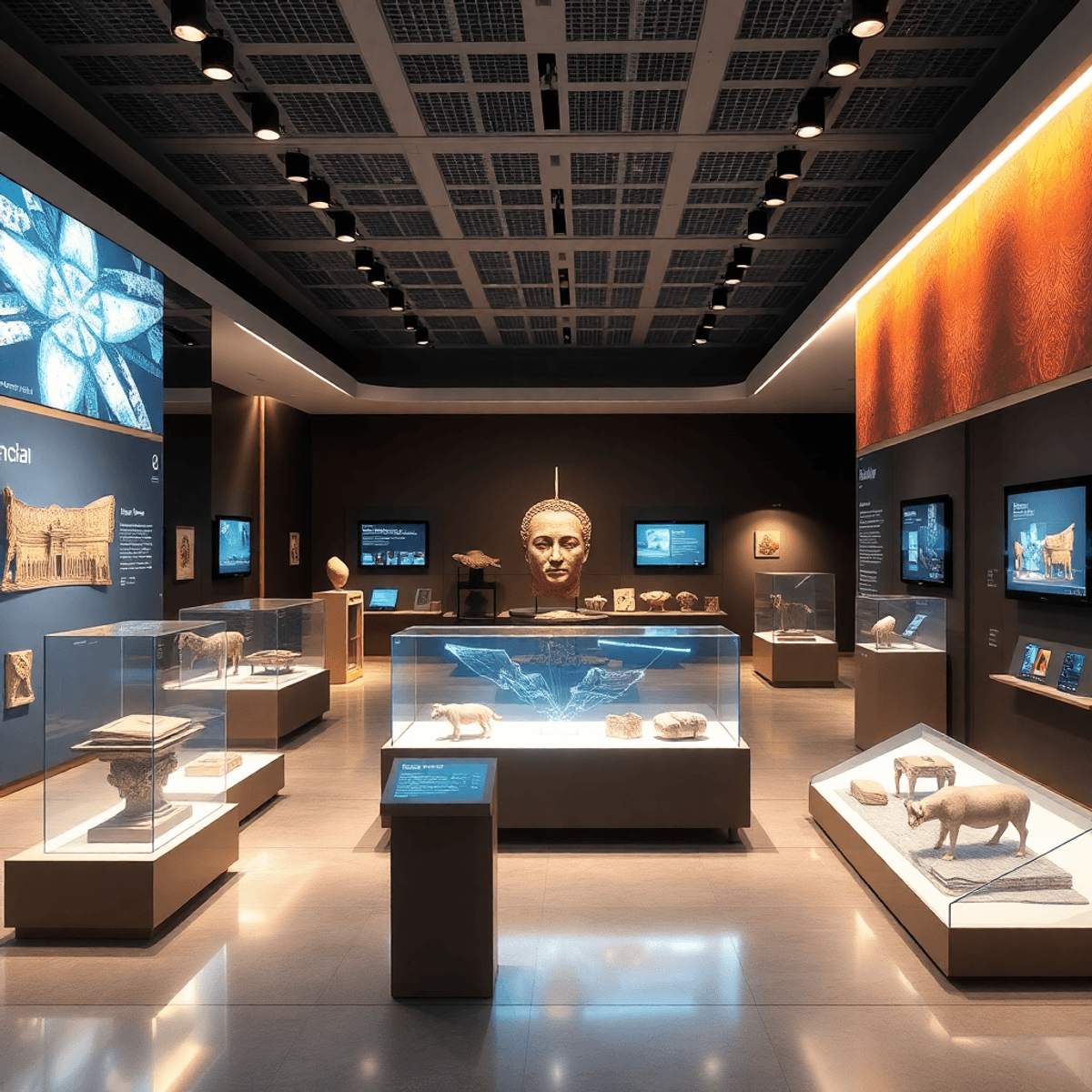
Piedmont University students and faculty recently announced the completion of “Memorialization and Visualization of Museum Exhibits in a Virtual Environment.” In this blog post, we explore the innovative ways in which technology is changing the concept of memorialization through virtual exhibits. We’ll discuss how preserving history and culture in a digital space can create new opportunities for engagement and education. Join us as we examine the world of virtual museum exhibits and their significance in preserving heritage for future generations.
The virtual exhibits are hosted at the Mason-Scharfenstein Museum of Art, where Piedmont University’s project comes to life. Dr. Bob Lutz oversees this innovative endeavor, guiding students like Ana Lopez Prado and Lennox Wilson in creating a captivating virtual experience. Their roles in documenting the Lillian E. Smith 80th Anniversary Exhibition and the LES Center in Clayton, Georgia, showcase a blend of historical preservation and technological advancement. This collaboration between academia and artistry enriches the project, offering a unique perspective on memorialization through virtual exhibits.
The virtual exhibition honoring Lillian E. Smith provides a lasting tribute to her significant contributions. It emphasizes the significance of the LES Center in Clayton, Georgia, where Smith lived and produced her influential work, serving as a source of inspiration and education for visitors.
Dr. Matthew Teutsch’s participation brings academic depth to the tribute, providing understanding into Smith’s impactful legacy and the historical backdrop of her accomplishments. The Lillian E. Smith 80th Anniversary Exhibition not only pays tribute to her but also underscores the continued importance of her beliefs and literary works in today’s world.
The Strange Fruit novel, published in 1944, stands as a pivotal work in Lillian E. Smith’s legacy. This powerful narrative boldly confronted issues of racial injustice and inequality in the American South during a time when such topics were often suppressed. Smith’s fearless approach elevated her voice as a social critic and advocate for civil rights.
The virtual museum exhibit showcases this novel as a cornerstone of her impact, highlighting its continued relevance decades later. A rare copy of Strange Fruit, signed by Dr. Martin Luther King Jr., is among the treasured items displayed, underscoring the connection between Smith’s work and influential civil rights leaders.
Piedmont University students and faculty recently announced the completion of “Memorialization and Visualization of Museum Exhibits in a Virtual Environment,” enriching access to this legacy from Demorest, GA. Their efforts create an immersive platform that strengthens the understanding of Smith’s contributions to literature and social justice through innovative technology.
The virtual reality experience offered by Piedmont University transforms how you engage with museum exhibits. This method removes physical boundaries, allowing you to explore collections from anywhere, anytime. The museum exhibits virtual environment replicates the spatial layout and ambiance of traditional galleries while adding interactive elements that deepen understanding.
The virtual reality experience offers several benefits for museum exhibits:
This immersive approach introduces a new dimension to memorialization. You do not merely view objects—you navigate their stories and contexts, making the connection more personal and impactful. The virtual environment fosters deeper appreciation for Lillian E. Smith’s legacy through innovative technology that bridges past and present.
The art and personal items display from Lillian E. Smith’s collection plays a central role in Piedmont University’s fine arts events. These exhibits provide a tangible connection to Smith’s life and work, offering visitors a unique glimpse into the historical and cultural context that shaped her legacy.
Key elements of the display include:
Piedmont University’s commitment to fine arts events extends beyond simple exhibitions. The university fosters an environment where art serves as a medium for education, dialogue, and community engagement. This approach enriches the experience for attendees, allowing them to explore history through both visual and literary arts.
By showcasing Smith’s collection within this vibrant setting, Piedmont University enhances appreciation for her contributions while supporting ongoing cultural conversations in the arts.
Piedmont University students and faculty recently announced the completion of “Memorialization and Visualization of Museum Exhibits in a Virtual Environment.” This groundbreaking project culminates in a virtual museum reception that invites the community to experience history in an immersive way.
Event Details:
You can attend the virtual reality museum event at Piedmont University to explore the Lillian E. Smith 80th Anniversary Exhibition firsthand. This is an excellent opportunity to engage with Smith’s legacy through art, personal items, and interactive exhibits brought to life by innovative technology.
The event welcomes everyone—students, faculty, local residents, and visitors—to celebrate cultural heritage and creativity. Your participation supports the university’s commitment to education and community involvement. Don’t miss this chance to dive deep into a rich historical narrative enhanced by virtual reality.


